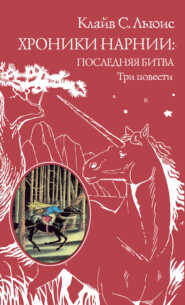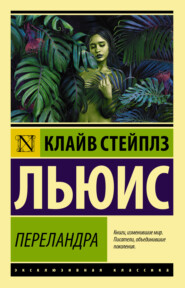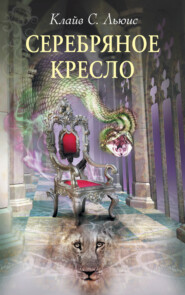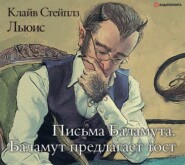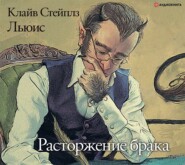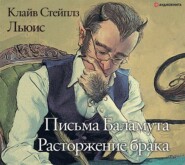По всем вопросам обращайтесь на: info@litportal.ru
(©) 2003-2024.
✖
The Reading Life: The Joy of Seeing New Worlds Through Others’ Eyes
Автор
Год написания книги
2019
Настройки чтения
Размер шрифта
Высота строк
Поля
Codirector of the Marion E. Wade Center at Wheaton College in Illinois
MICHAEL G. MAUDLIN
Senior Vice President and Executive Editor, HarperOne
(#ulink_3e1dcebd-883a-5cef-9f87-ed64a3e0260f)
WHY WE READ (#ulink_7dca9366-a79d-5391-8301-6f7e78db9ce0)
An Experiment in Criticism
(from the Epilogue)
WE SEEK AN ENLARGEMENT OF OUR BEING. WE want to be more than ourselves.
Each of us by nature sees the whole world from one point of view with a perspective and a selectiveness peculiar to himself. And even when we build disinterested fantasies, they are saturated with, and limited by, our own psychology. To acquiesce in this particularity on the sensuous level—in other words, not to discount perspective—would be lunacy. We should then believe that the railway line really grew narrower as it receded into the distance. But we want to escape the illusions of perspective on higher levels too.
We want to see with other eyes, to imagine with other imaginations, to feel with other hearts, as well as with our own. We are not content to be Leibnitzian monads. We demand windows. Literature as Logos is a series of windows, even of doors. One of the things we feel after reading a great work is ‘I have got out’. Or from another point of view, ‘I have got in’; pierced the shell of some other monad and discovered what it is like inside.
Good reading, therefore, though it is not essentially an affectional or moral or intellectual activity, has something in common with all three. In love we escape from our self into one other. In the moral sphere, every act of justice or charity involves putting ourselves in the other person’s place and thus transcending our own competitive particularity. In coming to understand anything we are rejecting the facts as they are for us in favour of the facts as they are. The primary impulse of each is to maintain and aggrandise himself. The secondary impulse is to go out of the self, to correct its provincialism and heal its loneliness. In love, in virtue, in the pursuit of knowledge, and in the reception of the arts, we are doing this. Obviously this process can be described either as an enlargement or as a temporary annihilation of the self. But that is an old paradox; ‘he that loseth his life shall save it’.
We want to see with other eyes, to imagine with other imaginations, to feel with other hearts, as well as with our own.
We therefore delight to enter into other men’s beliefs (those, say, of Lucretius or Lawrence) even though we think them untrue. And into their passions, though we think them depraved, like those, sometimes, of Marlowe or Carlyle. And also into their imaginations, though they lack all realism of content.
This must not be understood as if I were making the literature of power once more into a department within the literature of knowledge—a department which existed to gratify our rational curiosity about other people’s psychology. It is not a question of knowing (in that sense) at all. It is connaitre not savoir; it is erleben; we become these other selves. Not only nor chiefly in order to see what they are like but in order to see what they see, to occupy, for a while, their seat in the great theatre, to use their spectacles and be made free of whatever insights, joys, terrors, wonders or merriment those spectacles reveal. Hence it is irrelevant whether the mood expressed in a poem was truly and historically the poet’s own or one that he also had imagined. What matters is his power to make us live it. I doubt whether Donne the man gave more than playful and dramatic harbourage to the mood expressed in ‘The Apparition.’ I doubt still more whether the real Pope, save while he wrote it, or even then more than dramatically, felt what he expresses in the passage beginning ‘Yes, I am proud’.
What does it matter?
This, so far as I can see, is the specific value or good of literature considered as Logos; it admits us to experiences other than our own. They are not, any more than our personal experiences, all equally worth having. Some, as we say, ‘interest’ us more than others. The causes of this interest are naturally extremely various and differ from one man to another; it may be the typical (and we say ‘How true!’) or the abnormal (and we say ‘How strange!’); it may be the beautiful, the terrible, the awe-inspiring, the exhilarating, the pathetic, the comic, or the merely piquant. Literature gives the entrée to them all.
Those of us who have been true readers all our life seldom fully realise the enormous extension of our being which we owe to authors. We realise it best when we talk with an unliterary friend. He may be full of goodness and good sense but he inhabits a tiny world. In it, we should be suffocated. The man who is contented to be only himself, and therefore less a self, is in prison. My own eyes are not enough for me, I will see through those of others. Reality, even seen through the eyes of many, is not enough. I will see what others have invented. Even the eyes of all humanity are not enough. I regret that the brutes cannot write books. Very gladly would I learn what face things present to a mouse or a bee; more gladly still would I perceive the olfactory world charged with all the information and emotion it carries for a dog.
Literary experience heals the wound, without undermining the privilege, of individuality. There are mass emotions which heal the wound; but they destroy the privilege. In them our separate selves are pooled and we sink back into sub-individuality. But in reading great literature I become a thousand men and yet remain myself. Like the night sky in the Greek poem, I see with a myriad eyes, but it is still I who see. Here, as in worship, in love, in moral action, and in knowing, I transcend myself; and am never more myself than when I do.
HOW TO KNOW IF YOU ARE A TRUE READER (#ulink_5cf7b29b-f47d-59ea-bece-a177b78b6d28)
An Experiment in Criticism
(from Chapter 1, “A Few and the Many”)
1. Loves to re-read books.
The majority never read anything twice. The sure mark of an unliterary man is that he considers ‘I’ve read it already’ to be a conclusive argument against reading a work. We have all known women who remembered a novel so dimly that they had to stand for half an hour in the library skimming through it before they were certain they had once read it. But the moment they became certain, they rejected it immediately. It was for them dead, like a burnt-out match, an old railway ticket, or yesterday’s paper; they had already used it. Those who read great works, on the other hand, will read the same work ten, twenty or thirty times during the course of their life.
2. Highly values reading as an activity (versus as a last resort).
Secondly, the majority, though they are sometimes frequent readers, do not set much store by reading. They turn to it as a last resource. They abandon it with alacrity as soon as any alternative pastime turns up. It is kept for railway journeys, illnesses, odd moments of enforced solitude, or for the process called ‘reading oneself to sleep’. They sometimes combine it with desultory conversation; often, with listening to the radio. But literary people are always looking for leisure and silence in which to read and do so with their whole attention. When they are denied such attentive and undisturbed reading even for a few days they feel impoverished.
3. Lists the reading of particular books as a life-changing experience.
Thirdly, the first reading of some literary work is often, to the literary, an experience so momentous that only experiences of love, religion, or bereavement can furnish a standard of comparison. Their whole consciousness is changed. They have become what they were not before. But there is no sign of anything like this among the other sort of readers. When they have finished the story or the novel, nothing much, or nothing at all, seems to have happened to them.
4. Continuously reflects and recalls what one has read.
Finally, and as a natural result of their different behaviour in reading, what they have read is constantly and prominently present to the mind of the few, but not to that of the many. The former mouth over their favourite lines and stanzas in solitude. Scenes and characters from books provide them with a sort of iconography by which they interpret or sum up their own experience. They talk to one another about books, often and at length. The latter seldom think or talk of their reading.
It is pretty clear that the majority, if they spoke without passion and were fully articulate, would not accuse us of liking the wrong books, but of making such a fuss about any books at all. We treat as a main ingredient in our well-being something which to them is marginal. Hence to say simply that they like one thing and we another is to leave out nearly the whole of the facts. If like is the correct word for what they do to books, some other word must be found for what we do. Or, conversely, if we like our kind of book we must not say that they like any book. If the few have ‘good taste’, then we may have to say that no such thing as ‘bad taste’ exists: for the inclination which the many have to their sort of reading is not the same thing and, if the word were univocally used, would not be called taste at all …
Many people enjoy popular music in a way which is compatible with humming the tune, stamping in time, talking, and eating. And when the popular tune has once gone out of fashion they enjoy it no more. Those who enjoy Bach react quite differently. Some buy pictures because the walls ‘look so bare without them’; and after the pictures have been in the house for a week they become practically invisible to them. But there are a few who feed on a great picture for years. As regards nature, the majority ‘like a nice view as well as anyone’. They are not saying a word against it. But to make the landscapes a really important factor in, say, choosing the place for a holiday—to put them on a level with such serious considerations as a luxurious hotel, a good golf links, and a sunny climate—would seem to them affectation.
WHY CHILDREN’S STORIES ARE NOT JUST FOR CHILDREN (#ulink_3cd526fe-95db-5fb8-871b-655cd9456c89)
Of Other Worlds
(from “On Three Ways of Writing for Children”)
I AM ALMOST INCLINED TO SET IT UP AS A CANON THAT a children’s story which is enjoyed only by children is a bad children’s story. The good ones last. A waltz which you can like only when you are waltzing is a bad waltz.
This canon seems to me most obviously true of that particular type of children’s story which is dearest to my own taste, the fantasy or fairy tale. Now the modern critical world uses ‘adult’ as a term of approval. It is hostile to what it calls ‘nostalgia’ and contemptuous of what it calls ‘Peter Pantheism’. Hence a man who admits that dwarfs and giants and talking beasts and witches are still dear to him in his fifty-third year is now less likely to be praised for his perennial youth than scorned and pitied for arrested development. If I spend some little time defending myself against these charges, this is not so much because it matters greatly whether I am scorned and pitied as because the defence is germane to my whole view of the fairy tale and even of literature in general. My defence consists of three propositions.
(1) I reply with a tu quoque [“you also”]. Critics who treat adult as a term of approval, instead of as a merely descriptive term, cannot be adult themselves. To be concerned about being grown up, to admire the grown up because it is grown up, to blush at the suspicion of being childish; these things are the marks of childhood and adolescence. And in childhood and adolescence they are, in moderation, healthy symptoms. Young things ought to want to grow. But to carry on into middle life or even into early manhood this concern about being adult is a mark of really arrested development. When I was ten, I read fairy tales in secret and would have been ashamed if I had been found doing so. Now that I am fifty I read them openly. When I became a man I put away childish things, including the fear of childishness and the desire to be very grown up.
(2) The modern view seems to me to involve a false conception of growth. They accuse us of arrested development because we have not lost a taste we had in childhood. But surely arrested development consists not in refusing to lose old things but in failing to add new things? I now like hock, which I am sure I should not have liked as a child. But I still like lemon-squash. I call this growth or development because I have been enriched: where I formerly had only one pleasure, I now have two. But if I had to lose the taste for lemon-squash before I acquired the taste for hock, that would not be growth but simple change. I now enjoy Tolstoy and Jane Austen and Trollope as well as fairy tales and I call that growth: if I had had to lose the fairy tales in order to acquire the novelists, I would not say that I had grown but only that I had changed. A tree grows because it adds rings: a train doesn’t grow by leaving one station behind and puffing on to the next. In reality, the case is stronger and more complicated than this. I think my growth is just as apparent when I now read the fairy tales as when I read the novelists, for I now enjoy the fairy tales better than I did in childhood: being now able to put more in, of course I get more out. But I do not here stress that point. Even if it were merely a taste for grown-up literature added to an unchanged taste for children’s literature, addition would still be entitled to the name ‘growth’, and the process of merely dropping one parcel when you pick up another would not. It is, of course, true that the process of growing does, incidentally and unfortunately, involve some more losses. But that is not the essence of growth, certainly not what makes growth admirable or desirable. If it were, if to drop parcels and to leave stations behind were the essence and virtue of growth, why should we stop at the adult? Why should not senile be equally a term of approval? Why are we not to be congratulated on losing our teeth and hair? Some critics seem to confuse growth with the cost of growth and also to wish to make that cost far higher than, in nature, it need be.
(3) The whole association of fairy tale and fantasy with childhood is local and accidental. I hope everyone has read Tolkien’s essay on fairy tales, which is perhaps the most important contribution to the subject that anyone has yet made. If so, you will know already that, in most places and times, the fairy tale has not been specially made for, nor exclusively enjoyed by, children. It has gravitated to the nursery when it became unfashionable in literary circles, just as unfashionable furniture gravitated to the nursery in Victorian houses. In fact, many children do not like this kind of book, just as many children do not like horsehair sofas: and many adults do like it, just as many adults like rocking chairs. And those who do like it, whether young or old, probably like it for the same reason. And none of us can say with any certainty what that reason is. The two theories which are most often in my mind are those of Tolkien and of Jung.
According to Tolkien[1] (#litres_trial_promo) the appeal of the fairy story lies in the fact that man most fully exercises his function as a ‘subcreator’; not, as they love to say now, making a ‘comment upon life’ but making, so far as possible, a subordinate world of his own. Since, in Tolkien’s view, this is one of man’s proper functions, delight naturally arises whenever it is successfully performed. For Jung, fairy tale liberates Archetypes which dwell in the collective unconscious, and when we read a good fairy tale we are obeying the old precept ‘Know thyself’. I would venture to add to this my own theory, not indeed of the Kind as a whole, but of one feature in it: I mean, the presence of beings other than human which yet behave, in varying degrees, humanly: the giants and dwarfs and talking beasts. I believe these to be at least (for they may have many other sources of power and beauty) an admirable hieroglyphic which conveys psychology, types of character, more briefly than novelistic presentation and to readers whom novelistic presentation could not yet reach. Consider Mr Badger in The Wind in the Willows—that extraordinary amalgam of high rank, coarse manners, gruffness, shyness, and goodness. The child who has once met Mr Badger has ever afterwards, in its bones, a knowledge of humanity and of English social history which it could not get in any other way.
When I was ten, I read fairy tales in secret and would have been ashamed if I had been found doing so. Now that I am fifty I read them openly. When I became a man I put away childish things, including the fear of childishness and the desire to be very grown up.
Of course as all children’s literature is not fantastic, so all fantastic books need not be children’s books. It is still possible, even in an age so ferociously anti-romantic as our own, to write fantastic stories for adults: though you will usually need to have made a name in some more fashionable kind of literature before anyone will publish them. But there may be an author who at a particular moment finds not only fantasy but fantasy-for-children the exactly right form for what he wants to say. The distinction is a fine one. His fantasies for children and his fantasies for adults will have very much more in common with one another than either has with the ordinary novel or with what is sometimes called ‘the novel of child life’. Indeed the same readers will probably read both his fantastic ‘juveniles’ and his fantastic stories for adults. For I need not remind such an audience as this that the neat sorting-out of books into age-groups, so dear to publishers, has only a very sketchy relation with the habits of any real readers. Those of us who are blamed when old for reading childish books were blamed when children for reading books too old for us. No reader worth his salt trots along in obedience to a time-table.
Вы ознакомились с фрагментом книги.
Приобретайте полный текст книги у нашего партнера:
Приобретайте полный текст книги у нашего партнера:








